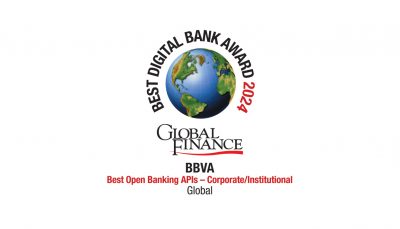World congresses where knowledge is shared have shown that we’re stronger together. History has taught us that when several companies engage in the same activity and combine their resources, wonderful ecosystems emerge. One of them is appearing right now. It’s called Open Future World and it is an open banking digital directory.
This freemium platform seeks to become a beacon of light and a driver of the world of open banking and finance (free code, API), providing a complete list of banking companies – regulated and unregulated – so that they can interact with each other, analyze the market in search of new ideas and improve both the competitiveness and provision of these services.
A global bank of ideas to learn together
If it works in India, it is likely to work in Europe. Environments where banks have penetrated tend to have global regulatory standardization (with its pros and cons) that allow ideas to be moved from one environment to another with relative ease. Thanks to initiatives such as BBVA API_Market or open banking directories such as Open Future World, it is possible to know a sector’s state of the art.
In other words, you no longer need to reinvent the wheel. If a team of programmers in Israel have created a service that allows a local bank to channel payments through a specific provider, then French banks are likely to be able to implement similar features, while allowing for their respective regulatory differences.
These meeting and information listing spaces are not based on replicating ideas, but on understanding what others have achieved in order to take these services to new markets. Both Marie Walker and Nick Cabrera, cofounders of the platform, have stressed the importance of understanding what can be done in open banking and what has worked elsewhere.
It is also a good way to compare between companies and improve market competitiveness. If four of the five direct competitors of a company have developed a certain banking process under the PSD2, and one of them has not, the latter already has a partial roadmap of which direction to take if it wants to stay on the market.
Comparing banking services to improve provision

Ideas arise from contact. It has long been known why cities lead innovation: There are more people with a specific type of knowledge, more interactions arise and new ways of understanding the world crystallize from these interactions. New services that add value to people. Open Future World is the digitization of that setting for meetings among professionals.
This directory seeks to become an always open world congress. A place where you go with a set of data and return with new data. A place to exchange ideas, concepts, learning and, why not, talent. So far, congresses and forums such as the Open Banking World Congress have been one of the best vehicles to learn about a particular sector.
These channels allow banking professionals to update their knowledge, update local regulations and understand technology limitations, as well as locate security breaches, understand what customers are looking for, locate tools with which to analyze the market, or avoid dead-end research. All thanks to the information they share.
Being able to carry out studies of the open banking market
As mentioned, open banking aims to eliminate these isolated islands of knowledge. Let’s put it this way: if Robert Hooke hadn’t spent part of his life sharing data on material deformation, Leonhard Euler would not have been able to develop the concept that Thomas Young years later would call “Young’s modulus” and which is now the basis for any construction.
Open banking and finance have been generating data, APIs and code for years, which in turn helps companies that implement them reduce their business spending. But knowledge is still unavailable for research, which penalizes all agents involved by not being able to learn from their joint experience. Directories such as Open Future World, in the words of Nick Cabrera, aim to “highlight some of best emerging studies.”
In other words, sharing know-how so that information flows from and to service providers, so that everyone learns together. And, of course, to commercialize this interaction through a freemium service as was already the case at congresses, which can often be accessed for free but contact with professionals comes at a cost.
Thus, much of the company directory will be public and free, although data such as contact details will be premium. Both company contact details and market studies will be paid, and this is where much of the value of Open Future World resides, with a focus on the case studies of the 6th-monthly e-book, which aims to be at the forefront of open banking.












